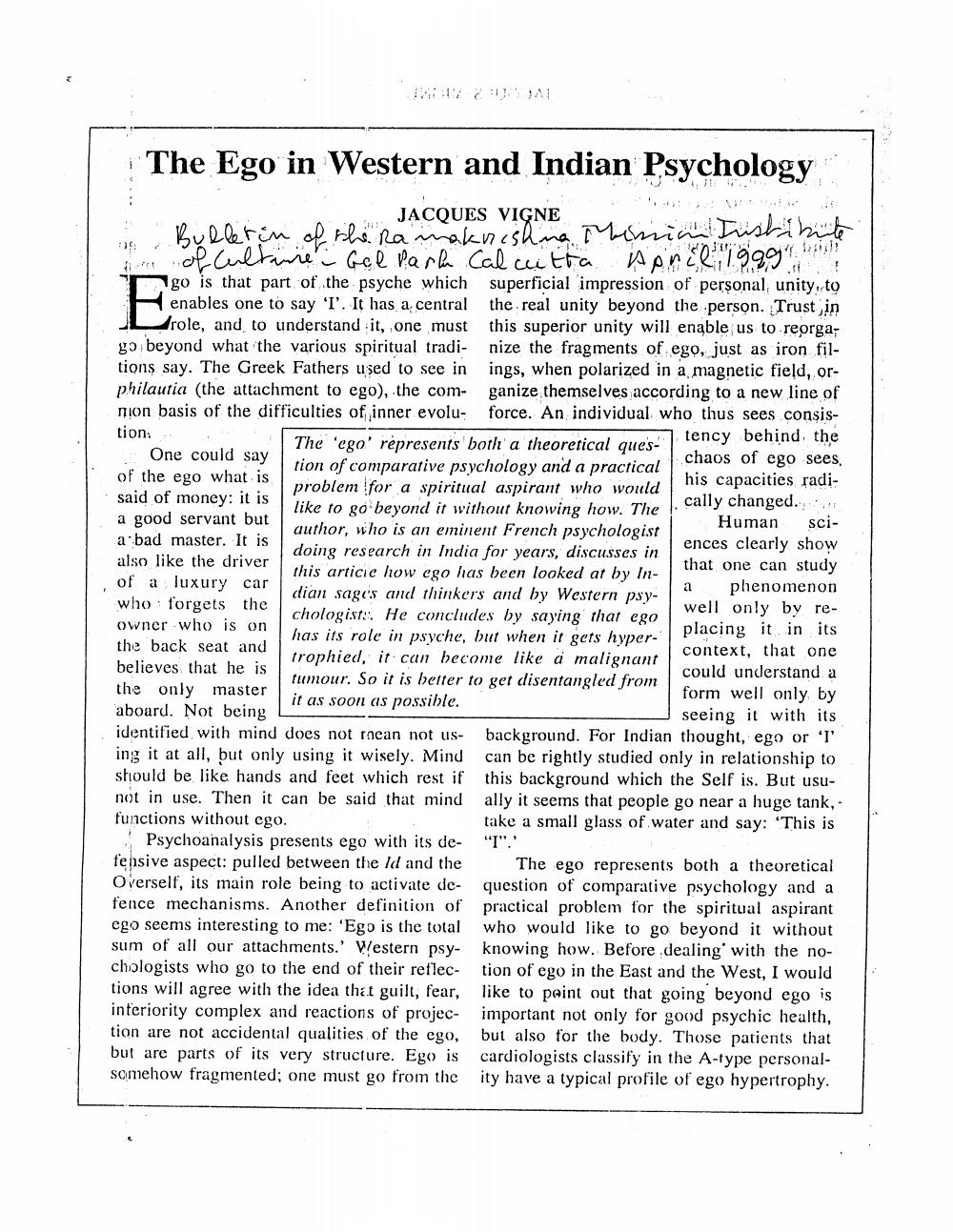________________
The Ego in Western and Indian Psychology
JACQUES VIGNE
bu
E
Bulletin of the Ramakrishna Missin Institut of Culture Gal Park Calcutta. April 1999 go is that part of the psyche which superficial impression of personal, unity to enables one to say 'I'. It has a central the real unity beyond the person. Trust in role, and to understand it, one must this superior unity will enable us to reorga go beyond what the various spiritual tradi- nize the fragments of ego, just as iron filtions say. The Greek Fathers used to see in ings, when polarized in a magnetic field, orphilautia (the attachment to ego), the com- ganize themselves according to a new line of mon basis of the difficulties of inner evolu- force. An individual who thus sees consistion: tency behind the chaos of ego sees. his capacities radically changed.....
One could say The 'ego' represents both a theoretical question of comparative psychology and a practical of the ego what is problem for a spiritual aspirant who would said of money: it is like to go beyond it without knowing how. The a good servant but author, who is an eminent French psychologist a bad master. It is doing research in India for years, discusses in also like the driver this article how ego has been looked at by Inof a luxury car dian sages and thinkers and by Western psywho forgets the chologist. He concludes by saying that ego owner who is on the back seat and has its role in psyche, but when it gets hypertrophied, it can become like a malignant believes that he is tumour. So it is better to get disentangled from the only master it as soon as possible. aboard. Not being identified with mind does not rnean not using it at all, but only using it wisely. Mind should be like hands and feet which rest if not in use. Then it can be said that mind functions without ego.
Psychoanalysis presents ego with its defensive aspect: pulled between the Id and the Overself, its main role being to activate defence mechanisms. Another definition of ego seems interesting to me: 'Ego is the total sum of all our attachments.' Western psy chologists who go to the end of their reflections will agree with the idea that guilt, fear, inferiority complex and reactions of projection are not accidental qualities of the ego, but are parts of its very structure. Ego is somehow fragmented; one must go from the
sci
Human ences clearly show that one can study phenomenon
a
well only by replacing it in its
context, that one could understand a form well only by seeing it with its background. For Indian thought, ego or 'I' can be rightly studied only in relationship to this background which the Self is. But usually it seems that people go near a huge tank, take a small glass of water and say: "This is
The ego represents both a theoretical question of comparative psychology and a practical problem for the spiritual aspirant who would like to go beyond it without knowing how. Before dealing with the notion of ego in the East and the West, I would like to point out that going beyond ego is important not only for good psychic health, but also for the body. Those patients that cardiologists classify in the A-type personality have a typical profile of ego hypertrophy.




